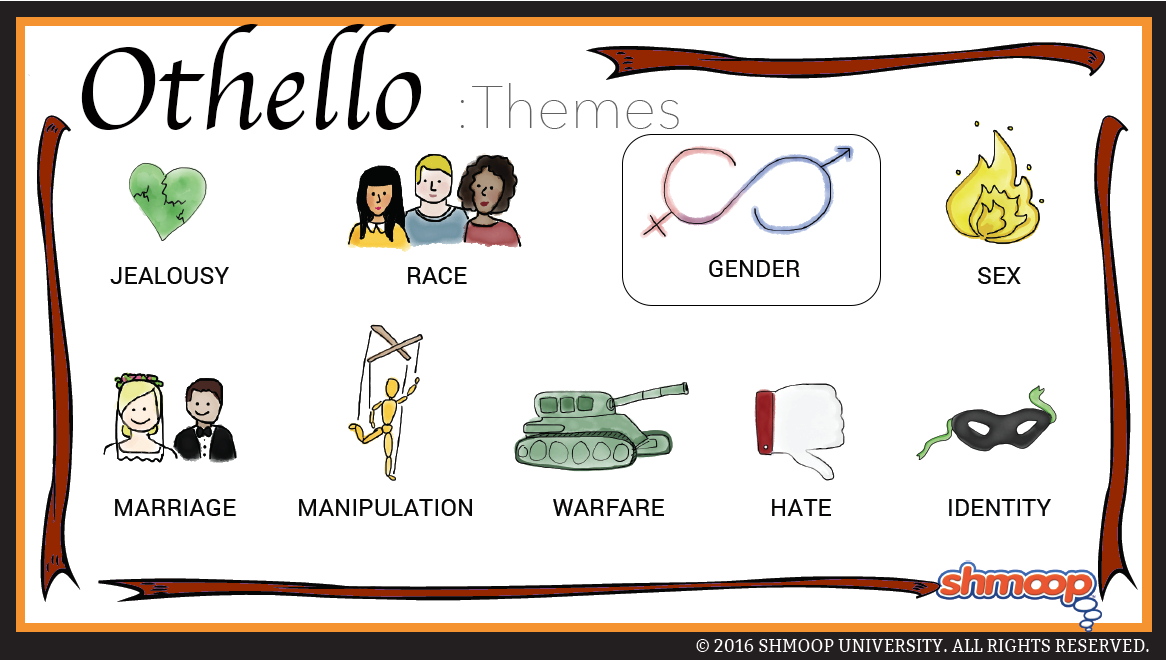 (Click the themes infographic to download.)
(Click the themes infographic to download.)
Gender relations are pretty antagonistic in Othello. Unmarried women are regarded as their fathers' property and the play's two marriages are marked by male jealousy and cruelty (both wives are murdered by their own husbands). Most male characters in Othello assume that all Venetian women are inherently promiscuous, which explains why female sexuality is a huge threat to men in the play. Othello is easily convinced his wife is cheating on him and feels emasculated and humiliated as a result.
We should also note that it's impossible to discuss gender and sexuality without considering race: Several characters in the play, including Othello, believe that black men sexually contaminate white women, which may partially explain why Othello sees his wife as soiled. See also our discussions of "Race" and "Sex" for more on this topic.
Questions About Gender
- What kinds of assumptions do male characters make about women? How do male characters view female sexuality in the play?
- Do male characters ever feel emasculated? If so, when? What triggers such feelings?
- When Iago tells Brabantio that Othello has eloped with his daughter, why does he call Othello a "thief"? What kinds of assumptions about daughters are being made here?
- Why does Desdemona want to go to war with Othello?
Chew on This
In the play, most male characters assume that women are naturally promiscuous, even if there's no concrete evidence to support such ideas.
Othello is like Shakespeare's The Merchant of Venice in that both plays feature fathers who view their unmarried daughters as their property.